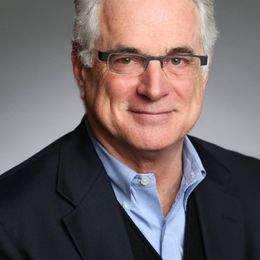You Can Now Invest in Longevity Trends. Should You?
A look at the recent boom in funds investing in aging
You might not think there's a connection between screen legend Sophia Loren and your money. But there actually is. Let me explain.

Loren, now 86, stars in the new, acclaimed Netflix movie, "The Life Ahead." Speaking to The Financial Times, Loren said she has no plans to retire because it's a little too early. "I'm still alive. I'm still full of things I want to do. It's premature to be remembered. No, no, no, it's too early," Loren explained.
"Aging will be different than historically. It will change everything."
So, here's the link to your finances: Loren's approach to aging is increasingly commonplace with life expectancy rising worldwide. Longevity now ranks as one of the most significant forces shaping the global economy, opening up multi-trillion dollar opportunities to reshape societies, hopefully for the better.
As a result, money managers lately have been coming up with ways you can invest to — ideally — profit from longevity trends, through specialized exchange-traded funds or ETFs. (An ETF is an index fund that is bought and sold like a stock.)
These newish funds, with mildly amusing stock symbols, include Globl X Longevity Thematic ETF (symbol: LNGR); CI Global Longevity Economy Fund (LONG) and the Long-Term Care ETF (Old). Axa IM, the global investment manager, also turned a health care fund into the Axa WF Framlington Longevity Economy fund, but it's not available to U.S. investors.
"There will be a significant number of longevity-themed exchange traded funds (ETF) emerging rapidly in the next 3-5 years," wrote Dmitry Kaminsky and Margaretta Colangelo in their 2019 book, "Longevity Industry 1.0."
The Birth and Growth of Longevity Funds
Longevity funds invest in companies that could benefit from healthy aging; financial services for longer lives; aging in place; self-driving vehicles and technologies that aid long-term care or other sectors contributing to higher-quality lives with longer life spans.
The core idea is that living longer is only good for the individual, society and the economy if the extra years are enjoyed in good health and without fear of running out of money.
"Aging will be different than historically. It will change everything," says Jeff Elliot, vice-president, portfolio management and portfolio manager at Canada's Signature Global Asset Management.
The question is: Should you invest some of your money in longevity?
That wasn't even an option until pretty recently. For years, most of the money-making (and sometimes money-losing) prospects for longevity investing have been confined to those well-heeled enough to participate in angel, venture capital and private equity funds. And Wall Street finance wizards created complex longevity-linked assets to reduce the risk for insurers and pension funds that people on their books will live longer than expected.
But now, Wall Street is seeing dollar signs from small investors.
"We are at the dawn of the internet equivalent in this industry," said Jim Mellon, an entrepreneur and venture capitalist at the Abundance 360 Summit of fellow entrepreneurs last year.
Tina Woods, CEO and co-founder of the nonprofit Longevity International and author of "Live Longer with AI" [artificial intelligence] puts it this way: "We're living longer, and hopefully we can live well. Artificial intelligence is helping us extend our lifespan and live better, too. We need to link to patient capital to drive innovation."
The Thinking Behind the Longevity Funds
Patient capital? She means money from people like you who don't invest for quick profits.
Some of the longevity ETFs come with impressive pedigrees.
For instance, insights and research informing the investment approach of the Canadian-based, six-month-old CI Global Longevity Economy Fund (not yet open to American investors) comes from Joseph Coughlin, director of the MIT AgeLab and a Next Avenue Influencer in Aging. Coughlin, author of "The Longevity Economy: Unlocking the World's Fastest-Growing, Most Misunderstood Market," is a tireless advocate for getting businesses to see the opportunities from longer, active lives.
This fund's portfolio manager, Jeff Elliott, notes that cosmetic companies are starting to spend marketing dollars on older adults, and tech companies are using AI to improve long-term care at home.
Longevity ETFs might not own the kinds of companies you think they do.
"What is starting to change as the cohort gets older, with a lot of money — we're seeing companies having to adapt to that whether they want to or not," says Elliott.
The lure is obvious. The logic of the longevity theme is powerful. Yet caution seems like the right stance right now, since longevity investments are just starting to enter the mainstream.
At least that's my takeaway from the recent Morningstar report, "Global Thematic Funds Landscape: These funds have captured investors' imagination and their assets, but buyers should beware."
Investors Beware or Be Excited?
To be sure, investor interest in thematic funds — ranging from robotics to cannabis to longevity — has swelled along with the recent bull market in stocks. Morningstar calculates that thematic funds attracted approximately $195 billion worldwide in 2019, up from $75 billion three years earlier.
But here's the important thing to understand: Thematic funds are risky.
Not only must their investment theme be strong, but their portfolio managers need to own the right stocks at the right prices before the market recognizes the potential.
And longevity ETFs might not own the kinds of companies you think they do.
For example, the Long-Term Care ETF is essentially a real estate play. Its top two holdings currently are real estate investment trusts that specialize in senior living. By contrast, 94% of the Globl X Longevity Thematic ETF portfolio is in health care.
The difference in those ETFs' investment focus helps explain why their year-to-date total return is so different and why you need to know what you're getting when you invest in these types of funds.
The Long-term Care ETF is down roughly 5% while the Globl X fund is up about 12%. (The total return of stock price appreciation and dividends for the Standard & Poor's 500, a diversified basket of the 500 largest U.S. public companies, is roughly 12.5% this year.)
All that said, analysts say there's nothing wrong with putting a small percentage of your portfolio at risk in a longevity-themed fund. But only do so with the understanding that you could lose some of what you invest.
To Invest or Not to Invest?
"It's a part of your funny-money bucket," says Ben Johnson, director of Global ETF Research at Morningstar and coauthor of the Global Thematic Funds Landscape report.
Major players in the longevity ecosystem believe that investors will see the theme as compelling as what's known as environmental, social and governance (ESG) investing. But the concept, also known as socially responsible and sustainable investing, was largely met with derision on Wall Street as recently as the early 2000s. Instead, the idea of doing good while doing well through investing was largely confined to the capital market's tributaries.
However, socially responsible or ESG investing has gone mainstream and now attracts trillions of dollars. Credit the growing concerns about global climate change.
The tragedy of COVID-19 could do for longevity investing what climate change did to sustainable investing. The coronavirus pandemic has starkly highlighted the enormous economic and moral value of good health among older adults for the economy and for society.
Says Woods: "Health is where the climate change agenda was ten years ago. With COVID, we're seeing the large risks associated with poor health."
It's sobering to think that one legacy of the horrible pandemic could be accelerating the embrace of the optimistic promise of high-quality, long lives. That's the heart of the longevity economy narrative, and it just could help people live healthier and wealthier lives.


